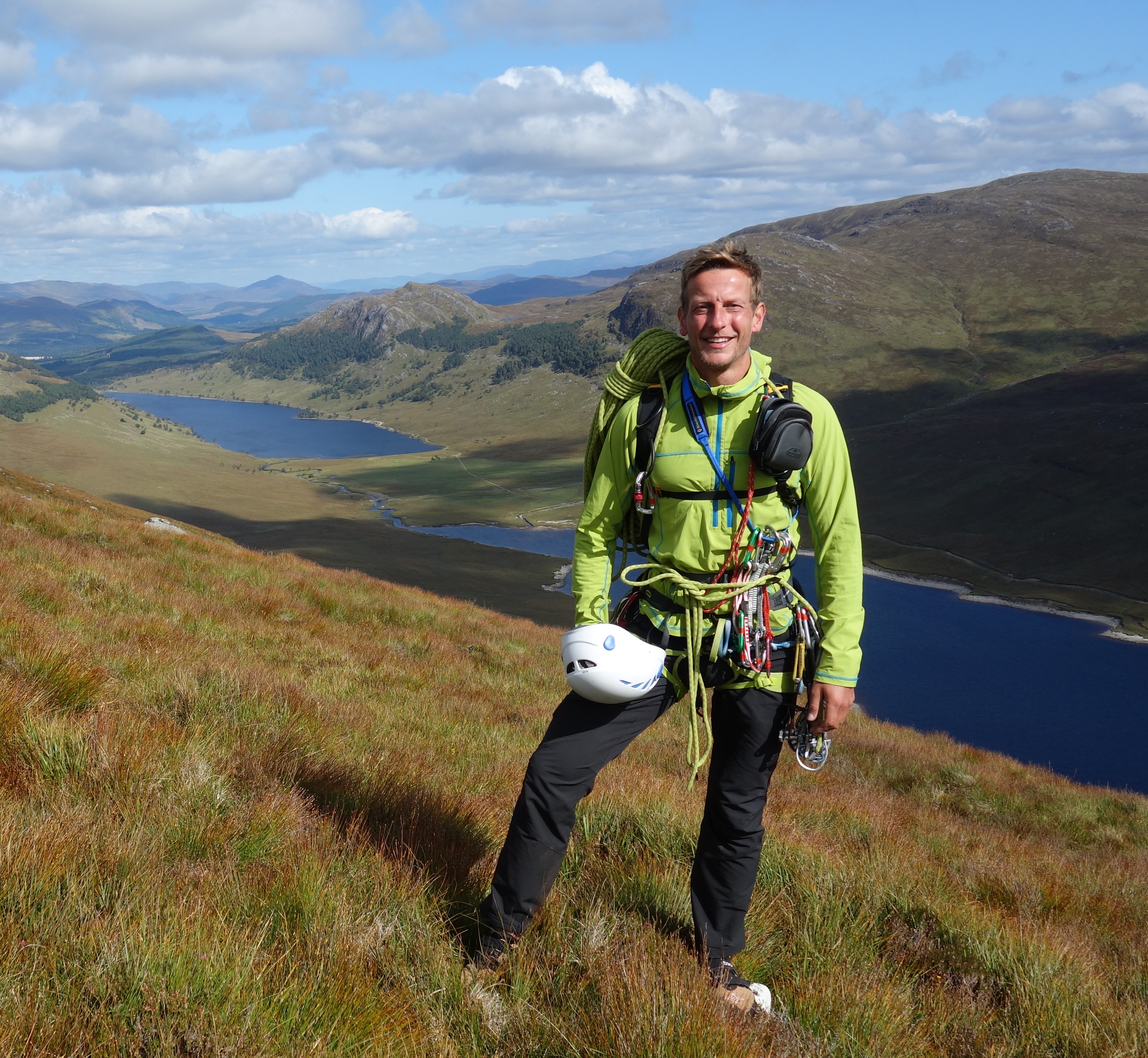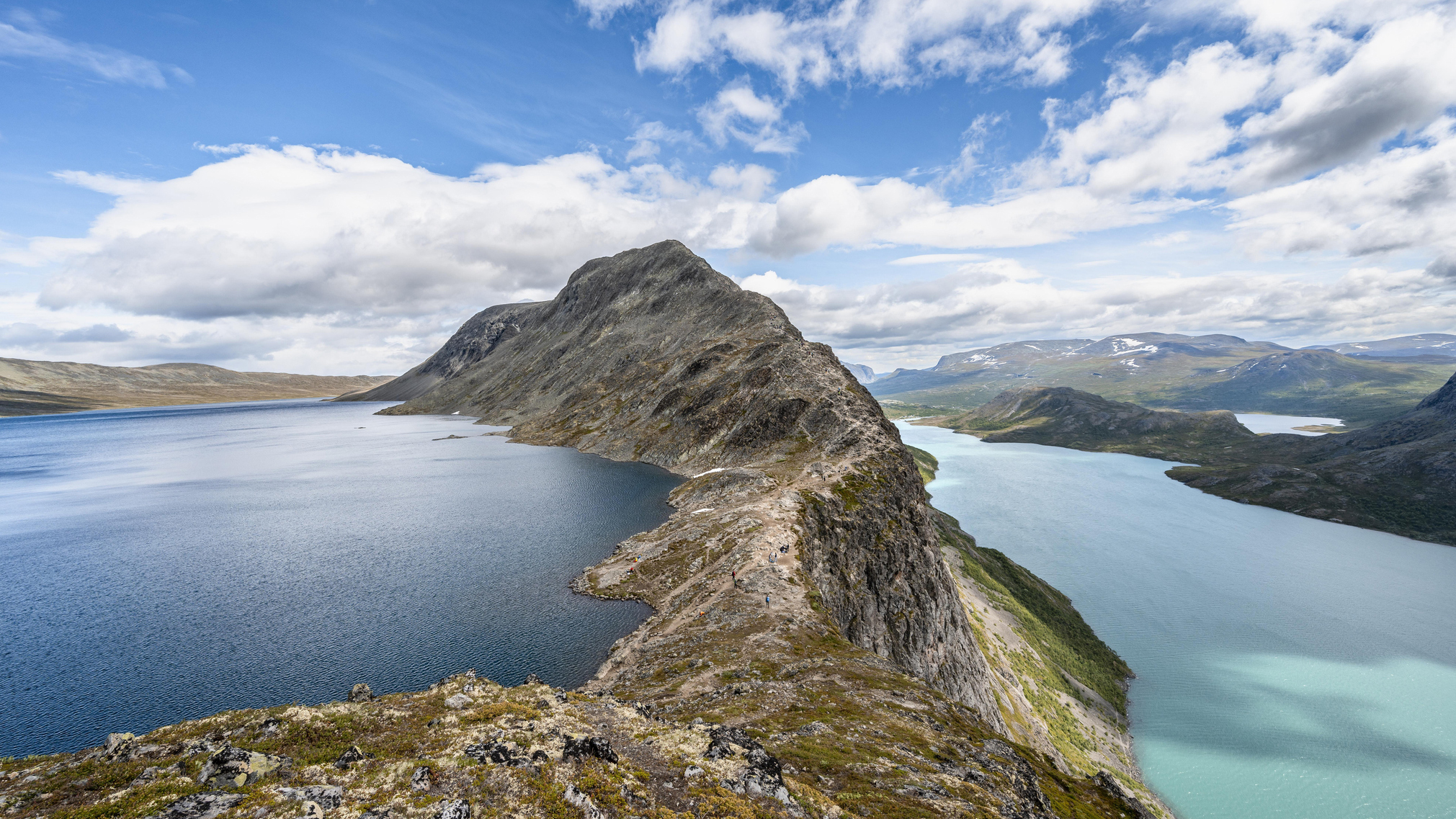Green exercise: 7 reasons why the great outdoors is awesome for your mental health
Experts are now in agreement that green exercise is great for your mental health. In this post, we delve into 7 reasons why this is the case
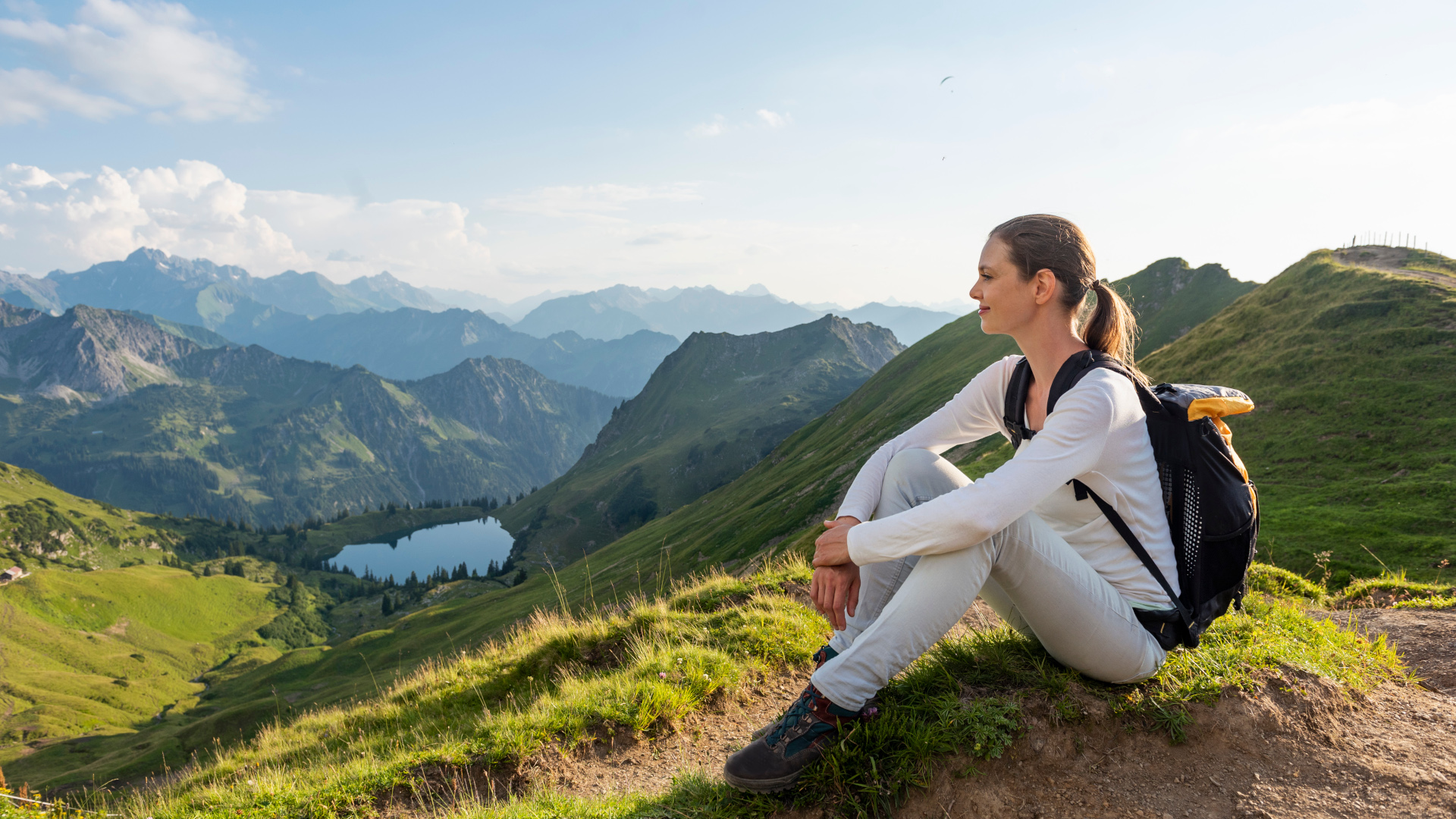
These days, with the vast range of psychological therapies and therapeutics at our disposal, many of us are apt to overlook one resource that’s free, readily available to all, and which can benefit our mental health in multiple ways: green exercise.
Most of us are, of course, perfectly aware that hiking, trail running, wild swimming, and other green activities are among the healthiest forms of physical exercise out there. In recent years, however, a growing body of medical research has demonstrated that their positive impact on mental health is equally – if not more – significant.
The beneficial effects of “green exercise” are numerous, ranging from stress reduction and the alleviation of depression and anxiety to improved mood and self-esteem. In this article, we’re going to delve into the science behind all these benefits in a bid to convince as many people as possible that heading outdoors shouldn’t be seen as a once-in-a-while luxury indulged for enjoyment’s sake only but, rather, a non-negotiable necessity for our psychological and emotional well-being.
This post is part of a series we’ve put together in support of Mental Health Awareness Week. If you’re keen to read more about the ways in which green exercise has benefited others, check out our interviews with Blackdog Outdoors and a group of outdoor athletes and adventurers.
7 reasons why green exercise is great for your mental health
1. It helps to combat depression and anxiety
Anxiety disorders and Major Depressive Disorder are two of the most common mental illnesses in the world. In the U.S. alone, anxiety disorders affect around 40 million adults, while MDD affects 16.1 million adults, which equates to 18.1% and 6.7% the U.S. population respectively.
Perhaps the most significant benefit of green exercise is its ability to counteract and relieve the symptoms of both of these mental health issues.
One study of people with Major Depressive Disorder revealed that a mere 50-minute walk in nature was enough to boost subjects’ levels of the “happy hormone” dopamine and feel a significant improvement in mood, while a second study from Stanford University found that participants who went for a walk in a natural environment showed less neural activity in the area of the brain associated with depression than in other participants walking in an urban environment. These findings were corroborated by a third study, published in Environmental Science and Technology, which demonstrated that spending time in nature helped to both prevent depression and anxiety and also mitigate the symptoms of both mental illnesses in long-term sufferers.
Advnture Newsletter
All the latest inspiration, tips and guides to help you plan your next Advnture!

2. Stress reduction
Stress is something that almost every adult is sure to experience at some point in their lifetimes and is not merely a challenging thing to experience in its own right but can also contribute to or increase the risk of several other physical and mental health issues, such as anxiety, depression, heart disease, and strokes.
The main way in which green exercise relieves stress is by removing us from the environments in which the most common “stressors” –street noise, enclosed spaces, phones, emails, technology in general – are prevalent or unavoidable.
The most notable study on the effects of nature time on stress was conducted in Japan, where researchers discovered that just 20 minutes of walking in a natural environment triggered a significant decrease in subjective feelings of stress in the study’s participants. Not only that, participants were subsequently recorded to have far lower levels of the stress hormone cortisol – which can also cause anxiety and depression – when taking a second walk in a busy urban environment shortly after a walk in the forest.
Perhaps the most interesting of all these studies, however, was conducted by researchers at the University of Michigan, who discovered that even if we don’t enjoy our time in the outdoors, nature will nevertheless continue to work its destressing wonders on our psyche.
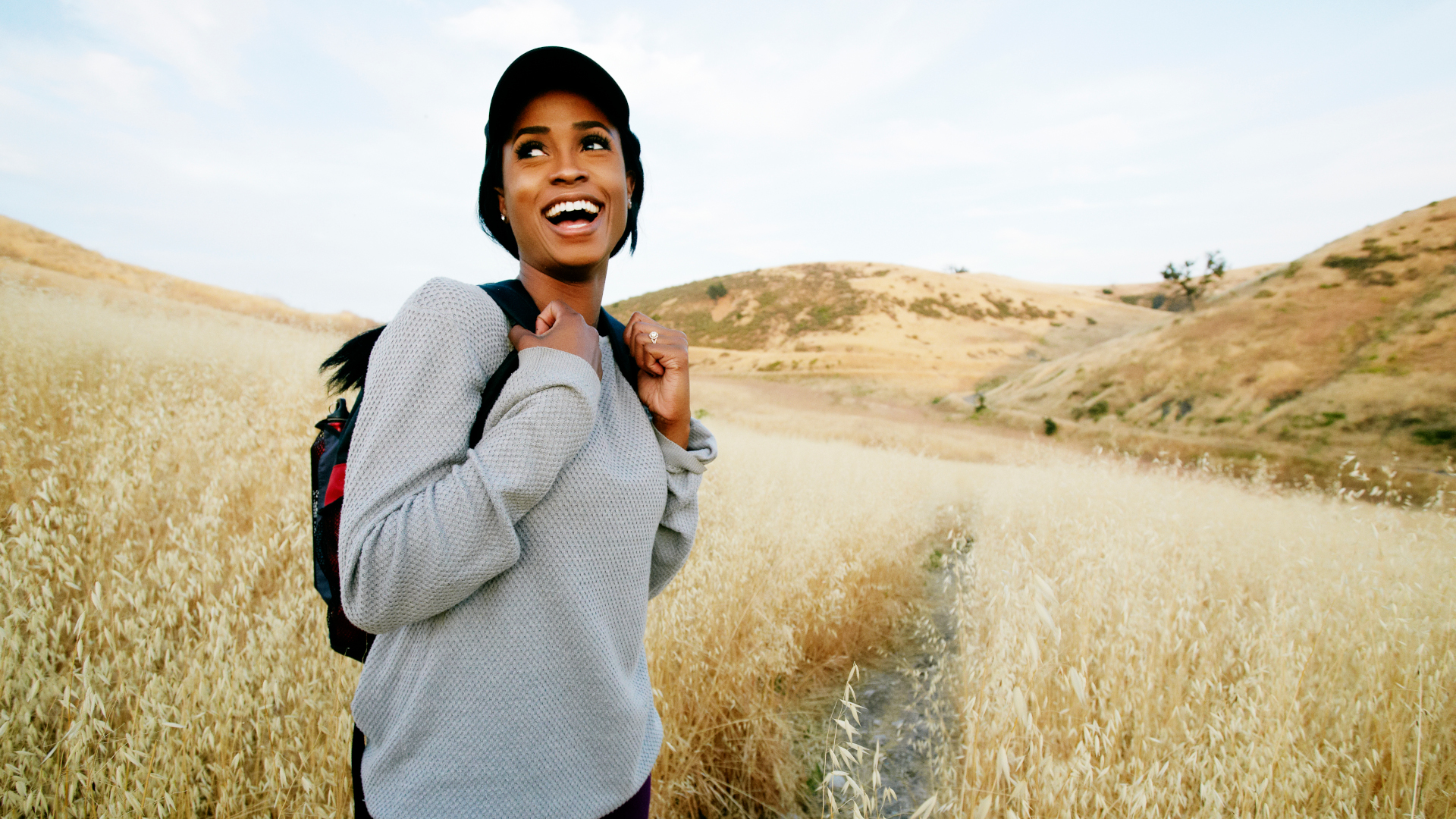
- Need some inspiration for your outdoor adventures? Check out our guide to the best mountains to climb in the US and 7 mountains you should climb in the UK
- When you head out on those first hikes, make sure you’re kitted out with the best hiking boots and all the hiking essentials
3. It boosts vitamin D and melatonin levels
The increased exposure to daylight we enjoy while doing our wandering and adventuring in the outdoors also helps to balance our melatonin levels and increase our bodies’ production of Vitamin D – aka “the sunshine vitamin.” Vitamin D has been shown to promote higher self-esteem, and a study by researchers at the University of Essex demonstrated that just fifteen minutes of outdoor time could be enough for us to get a mood-enhancing fill. Melatonin, meanwhile, helps to regulate our sleep cycle, which is pivotal to fending off mental health issues like depression and anxiety. While a healthy dose of both Vitamin D and melatonin could be copped by simply doing a little sunbathing, combining exposure to sunlight with physical exertion creates a synergistic effect that further augments the benefits.

4. A healthy endorphin hit
The term "runner’s high" is a bit of a misnomer, mainly because you don’t actually have to be running to get the high. Runner’s high occurs when our bodies release endorphins during exercise, whether we’re sprinting to the top of mountains à la Kilian Jornet and running ultras (see: What is ultra running?) or simply traipsing along at a very average hiking speed on a more moderate trail.
But what are these endorphins we speak of?
In a nutshell, endorphins are analgesics produced by our bodies that diminish our perception of pain, better our moods, and mitigate the symptoms of mental health issues like anxiety, panic disorder, PTSD (Post Traumatic Stress Disorder), depression, and stress – the kinda thing, in short, that most people would be willing to pay top $ for (but free on any mountain, hill, trail whatsoever near you!).
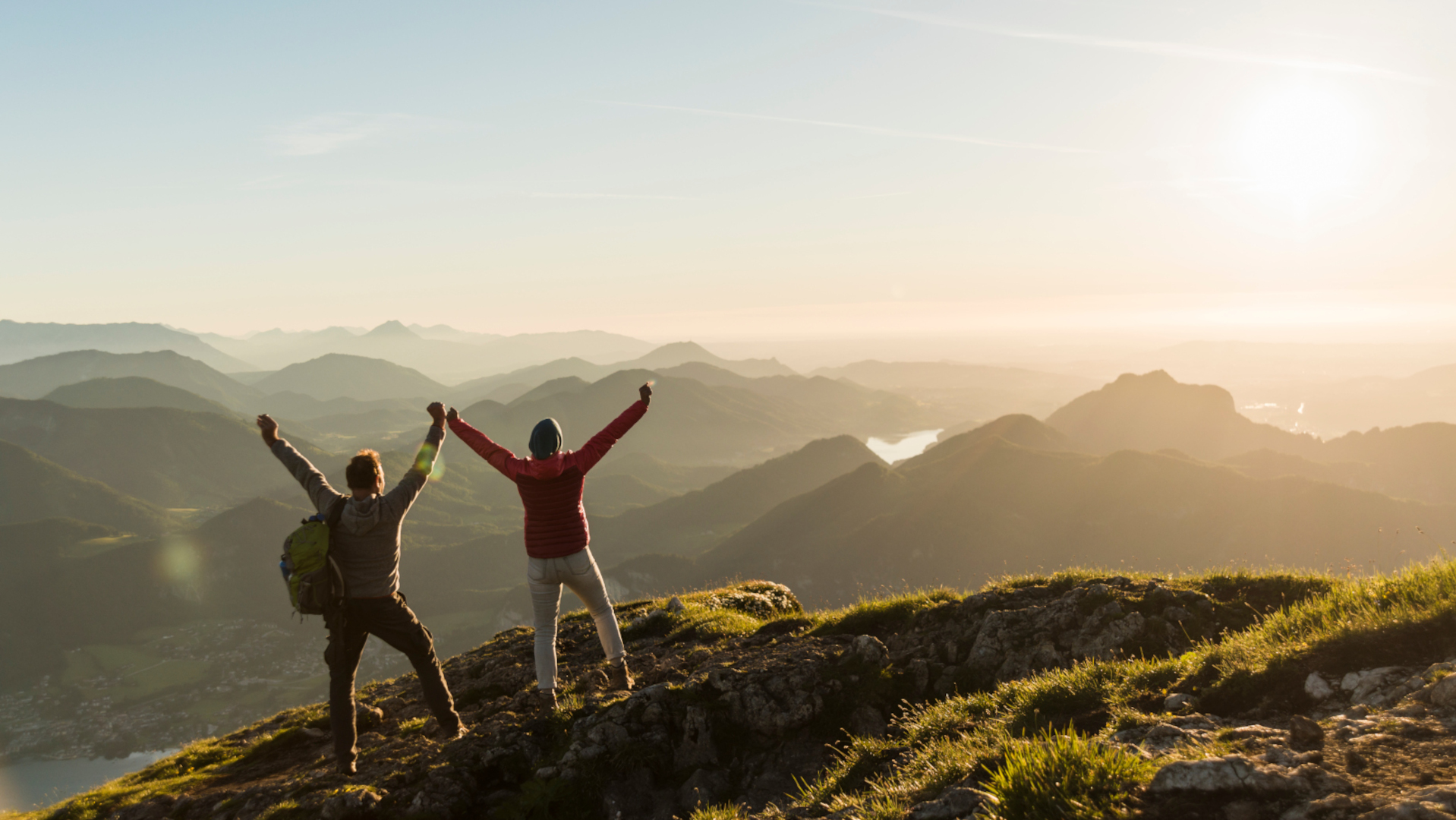
5. Reduced rumination
Excessive rumination is both a cause and symptom of several mental health issues, including anxiety, depression, binge eating, OCD, and PTSD. In a recent study published in Proceedings of the National Academy of Sciences, researchers found that hiking in nature decreases the obsessive and negative thoughts typically associated with depression and other mental illnesses.
In the study, researchers compared the reported levels of rumination of participants who spent 90 minutes walking in urban and natural environments. Participants who did their walking in the natural environment reported lower levels of rumination and also demonstrated reduced neural activity in the subgenual prefrontal cortex, the area of the brain associated with mental illness, while those who walked in the urban environment didn’t enjoy the same benefits.
6. Mitigate mental fatigue
In the modern world, our brains are exposed to more stimuli than at any other time in human history. And while it’s a blessing that we no longer have to devote cerebral bandwidth to the task of fending off mastodons or club-wielding cavemen as our ancestors did, the consequences of consistent exposure to stressors and stimuli like phones, advertising, video games, traffic, computers, televisions, and endless noise can be just as damaging to our psyche as the beasts and club-wielders might once have been to our anatomy, leaving our brains overburdened and never far from the burnout.
Heading into the outdoors for some green exercise, however, gives our cerebral command centers a rare chance to switch off, which not only provides some much-needed respite but also allows them to normalize and reset.
Apparently, you don’t even need to be scaling lofty peaks or stomping through the wilderness to reap the benefits – simply looking at images of awe-inspiring nature can promote an improvement in mood, reduce negative thinking, relax our minds, and help us to “pull away from daily petty concerns.” We would, however, heartily recommend that you get out and enjoy the genuine article!
As an added bonus, a 2012 study by the University of Kansas revealed that disconnection from multimedia and technology when spending time outdoors enhanced participants’ creative problem-solving ability by a whopping 50%, meaning we’ll be a lot better equipped to deal with all those stressors when we do return to our screens and offices after our sojourns in the outdoors.

7. Outdoors activities build community
In an age where loneliness and feelings of isolation are two of the most common contributors to mental health issues, activities that encourage people to get out and commune with fellow humans are more valuable than ever before. Group activities allow you to forge new friendships, meet like-minded people, and provide a form of social support that can help you ride out the rough days.
If you’re new to hiking or the outdoors, there are plenty of places to find new partners to pair up with for adventures. In the US, for example, organizations like the Sierra Club, Women Who Hike, REI, NOLS, and Outward Bound offer skills courses and/or organize group meets throughout the year. In the UK, groups like Blackdog Outdoors, Ramblers, and Black Girls Hike host group events and outings for people of all skill and fitness levels, while the BMC and Plas y Benin and guiding outfits like Wildcountry Consultants offer a wealth of educational programs and training courses to help you learn the skills needed to go it alone. Wherever you are in the world, MeetUp.com and local Facebook groups are a great way to find new outdoors friends and get those first few hikes/climbs/swims/runs under your belt.
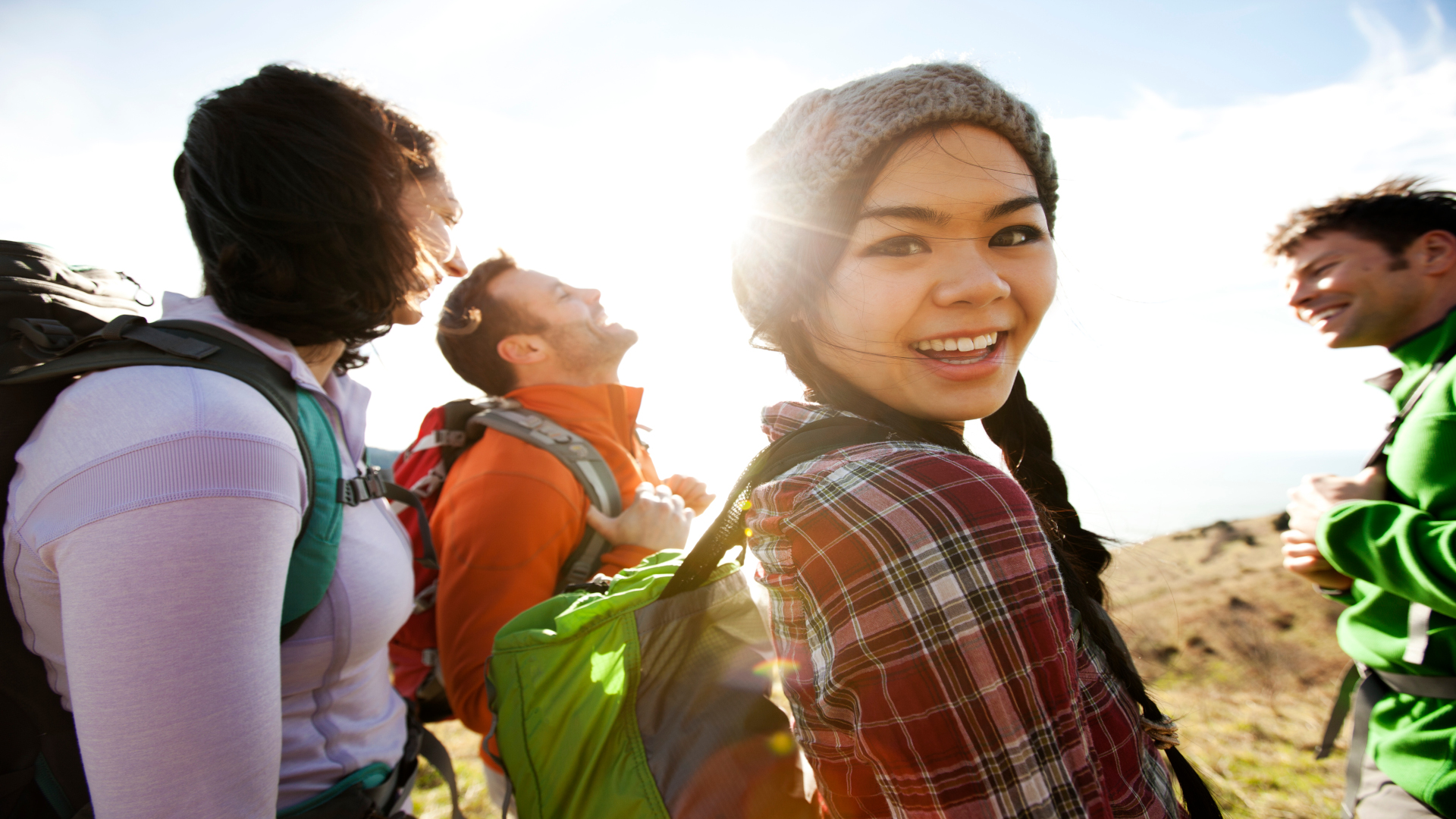
Former Advnture editor Kieran is a climber, mountaineer, and author who divides his time between the Italian Alps, the US, and his native Scotland.
He has climbed a handful of 6000ers in the Himalayas, 4000ers in the Alps, 14ers in the US, and loves nothing more than a good long-distance wander in the wilderness. He climbs when he should be writing, writes when he should be sleeping, has fun always.
Kieran is the author of 'Climbing the Walls', an exploration of the mental health benefits of climbing, mountaineering, and the great outdoors.
